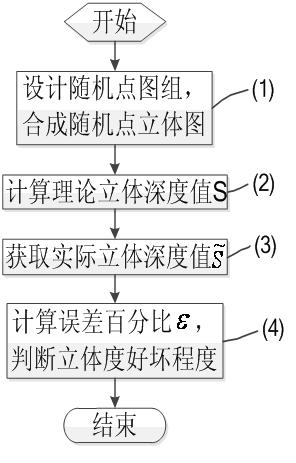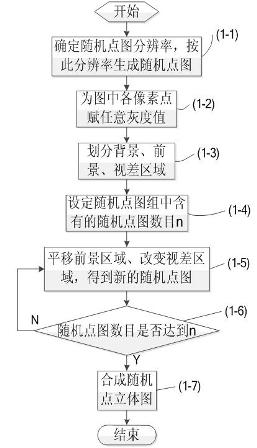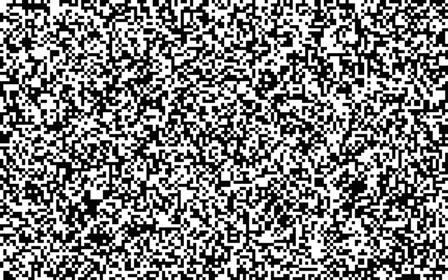Method for detecting stereo degree of autostereoscopic display by using random dot stereopsis
A stereoscopic display and random point technology, applied in the direction of instruments, optical components, optics, etc., can solve the problems of inability to accurately judge the stereoscopicity of the free stereoscopic display screen, and the inability to distinguish the real stereoscopic effect, and achieve the effect of avoiding interference factors
- Summary
- Abstract
- Description
- Claims
- Application Information
AI Technical Summary
Problems solved by technology
Method used
Image
Examples
Embodiment Construction
[0052] Embodiments of the present invention will be further described in detail below in conjunction with the drawings and specific implementation methods. The embodiments of the present invention take a lenticular lens grating stereoscopic display as an example.
[0053] Generate a random dot map based on the resolution requirements for the stereogram of the lenticular display to be tested. Assuming that the lenticular lens grating display requires the resolution of the subsequent stereoscopic image to be N×M, then a random dot map with the same resolution of N×M and a grid structure with random gray values is generated. The resolution of each small square is A×B, which can be adjusted according to the comfort of human eyes, such as image 3 , Figure 4 with Image 6 , Figure 7 shown. Figure 5 with Figure 8 respectively image 3 , 4 The group of random dot plots where and Image 6 , 7 Two random point stereograms are obtained by combining the random point maps....
PUM
 Login to View More
Login to View More Abstract
Description
Claims
Application Information
 Login to View More
Login to View More - Generate Ideas
- Intellectual Property
- Life Sciences
- Materials
- Tech Scout
- Unparalleled Data Quality
- Higher Quality Content
- 60% Fewer Hallucinations
Browse by: Latest US Patents, China's latest patents, Technical Efficacy Thesaurus, Application Domain, Technology Topic, Popular Technical Reports.
© 2025 PatSnap. All rights reserved.Legal|Privacy policy|Modern Slavery Act Transparency Statement|Sitemap|About US| Contact US: help@patsnap.com



